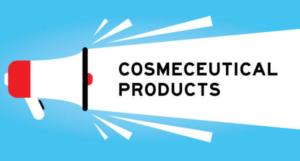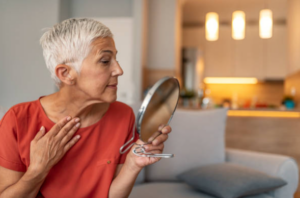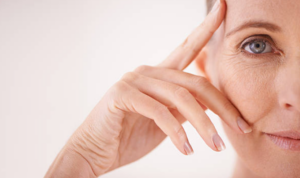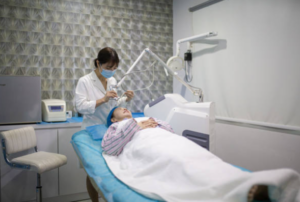The Pursuit of Youth

In a society fixated on youthfulness, the beauty industry often presents a dichotomy: the relentless pursuit of agelessness through anti-aging products juxtaposed with the celebration of aging gracefully. But where does the line blur between self-care and ageist propaganda? Are anti-aging products truly empowering or merely perpetuating unrealistic beauty standards? Let’s delve into this complex topic and explore the nuances of the pursuit of youth in the beauty realm.
In modern society, aging is often perceived through a lens that equates youth with desirability and vitality. However, this perspective overlooks the richness and depth that comes with age. Aging should be celebrated as a natural and inevitable part of life, marked by wisdom, experience, and personal growth. It’s essential to shift the narrative surrounding aging from one of decline and irrelevance to one of resilience and beauty.
Aging is a journey that encompasses physical, emotional, and spiritual dimensions. It involves not only changes in appearance but also shifts in perspective and priorities. With age comes a deeper understanding of oneself and the world, along with the ability to navigate life’s challenges with grace and wisdom.
Moreover, aging should be celebrated as a symbol of resilience and strength. Each wrinkle, laugh line, and gray hair tells a story of a life lived fully and authentically. Embracing the aging process allows individuals to honor their unique journey and embrace the beauty that comes with each passing year.
By redefining aging in a more positive light, we can challenge ageist attitudes and foster a culture that celebrates beauty at every age. This shift in mindset requires recognizing the inherent value of older individuals and acknowledging the contributions they make to society. Aging should be seen not as a limitation but as an opportunity for growth, self-discovery, and self-expression.
In the realm of beauty, redefining aging means embracing skincare practices that prioritize nourishment, hydration, and protection. Rather than viewing wrinkles and fine lines as flaws to be erased, we can see them as natural markers of a life well-lived. Skincare routines should focus on enhancing the health and vitality of the skin, regardless of age, and promoting a positive body image rooted in self-love and acceptance.

The Anti-Aging Industry
The anti-aging industry is a multifaceted entity comprising a wide array of products, services, and practices aimed at addressing the visible signs of aging. From skincare creams and serums to cosmetic procedures and lifestyle interventions, the market offers a plethora of options for individuals seeking to defy the effects of time. However, behind the allure of youthful transformation lies a complex interplay of consumer demand, scientific innovation, and societal expectations.
At the heart of the anti-aging industry is the desire to maintain or regain a youthful appearance. This desire is fueled by societal pressures that equate youth with beauty, success, and desirability. As a result, individuals of all ages are bombarded with messages promoting anti-aging products as essential tools for preserving their youth and vitality.
One of the key drivers of the anti-aging industry is technological innovation. Advances in skincare formulations, cosmetic procedures, and medical treatments have revolutionized the way we approach aging. From retinoids and peptides to laser therapy and injectables, the industry is constantly evolving to offer new and improved solutions for combating wrinkles, sagging skin, and other age-related concerns.
However, the proliferation of anti-aging products also raises ethical and societal concerns. Critics argue that the industry preys on individuals’ insecurities about aging, perpetuating unrealistic beauty standards and fostering a culture of ageism. By promoting the idea that youthfulness is synonymous with beauty and success, the anti-aging industry may inadvertently contribute to feelings of inadequacy and self-doubt among older individuals.
Moreover, the marketing tactics employed by many anti-aging brands often rely on fear-mongering and shame tactics. Terms like “anti-wrinkle,” “youthful glow,” and “age-defying” are commonly used to market products, sending a subtle yet powerful message that aging is something to be feared or avoided. This can create a sense of urgency and desperation among consumers, leading them to invest significant time and money into products that promise to turn back the clock.
Critics also raise concerns about the safety and efficacy of certain anti-aging treatments and procedures. While some products may deliver noticeable results, others may fall short of their lofty promises or even cause harm. Invasive procedures like Botox and fillers carry risks of complications, while aggressive skincare regimens may irritate the skin or exacerbate underlying conditions.
Despite these concerns, the anti-aging industry shows no signs of slowing down. As long as society continues to prioritize youthfulness and beauty, the demand for anti-aging products and services will remain strong. However, it’s essential for consumers to approach these offerings with a critical eye and to question the underlying messages they convey about aging and beauty. By challenging ageist beliefs and embracing a more inclusive definition of beauty, we can work towards creating a world where individuals of all ages feel valued and respected.

The Ageism Debate
One of the primary concerns raised in the ageism debate is the portrayal of aging in beauty advertising and media. Many anti-aging brands rely on imagery and messaging that equate youthfulness with beauty and desirability, reinforcing narrow beauty standards and excluding older individuals from the definition of attractiveness. By prioritizing youthful aesthetics over diversity and inclusivity, these brands contribute to the erasure of older individuals’ visibility and representation in the beauty landscape.
Furthermore, ageism in the beauty industry extends beyond marketing practices to product formulation and packaging. Many anti-aging products are specifically targeted towards older demographics, reinforcing the idea that aging is a problem to be solved rather than a natural and inevitable part of life. This can have detrimental effects on older individuals’ self-esteem and body image, perpetuating feelings of inadequacy and self-doubt.
Critics argue that the emphasis on anti-aging products and treatments perpetuates ageist ideologies by implying that aging is something to be feared or avoided at all costs. This mindset not only marginalizes older individuals but also reinforces narrow beauty standards that prioritize youth over wisdom and experience. By perpetuating ageist attitudes, the beauty industry contributes to the erasure of older individuals’ visibility and representation in society, further marginalizing them and perpetuating systemic discrimination based on age.
However, proponents of anti-aging products argue that they provide individuals with options to care for their skin and enhance their confidence, regardless of age. They contend that the pursuit of youthful aesthetics is a personal choice and should not be stigmatized or judged. Additionally, some argue that anti-aging products can promote positive aging by helping individuals maintain healthy skin and self-esteem as they grow older.
Empowerment vs. Exploitation
The intersection of empowerment and exploitation within the realm of anti-aging products is a complex and often contentious issue. While some argue that these products empower individuals to take control of their appearance and confidence, others contend that they exploit societal pressures and perpetuate unrealistic beauty standards. Let’s delve deeper into this dichotomy to understand the nuances of empowerment and exploitation within the anti-aging industry.
- Empowerment:
For many individuals, anti-aging products serve as tools for self-care and self-expression. By investing in skincare routines and treatments, they can enhance their confidence, improve the health of their skin, and maintain a youthful appearance. For some, the act of using anti-aging products is empowering, allowing them to take ownership of their bodies and embrace their beauty at every age.
Moreover, anti-aging products can provide individuals with a sense of agency and control over their appearance. In a society that places a high value on youthfulness and beauty, these products offer a way for individuals to navigate societal expectations and present themselves in a way that aligns with their personal preferences and values. By giving individuals the ability to shape their own narratives of aging, anti-aging products can empower them to feel confident and comfortable in their skin.
Furthermore, the anti-aging industry has made strides in promoting inclusivity and diversity, with brands increasingly featuring models of all ages, races, and body types in their advertising campaigns. This shift towards more diverse representation reflects a growing recognition of the beauty and value of individuals at every stage of life. By celebrating diversity and challenging ageist stereotypes, the beauty industry can empower individuals to embrace their unique beauty and self-expression.
- Exploitation:
Despite the potential for empowerment, the anti-aging industry is not without its ethical concerns. Critics argue that many anti-aging products exploit societal pressures and perpetuate unrealistic beauty standards, particularly for older individuals. The marketing tactics employed by some brands often rely on fear-mongering and shame tactics, preying on consumers’ insecurities about aging and creating a sense of urgency to purchase products.
Moreover, the emphasis on anti-aging products can contribute to the erasure of older individuals’ visibility and representation in the beauty landscape. By prioritizing youthful aesthetics over diversity and inclusivity, these products perpetuate ageist attitudes and exclude older individuals from the definition of beauty. This can have detrimental effects on older individuals’ self-esteem and body image, perpetuating feelings of inadequacy and self-doubt.
Additionally, the pursuit of anti-aging perfection can lead to harmful behaviors and practices, such as overuse of skincare products, excessive cosmetic procedures, and unrealistic expectations for physical appearance. This obsession with youthfulness can detract from individuals’ overall well-being and contribute to a culture of body dissatisfaction and self-criticism.

Rather than viewing aging as a battle to be fought, we should embrace a holistic approach that celebrates the beauty of aging in all its forms. This means prioritizing skincare practices that focus on nourishing and protecting the skin, regardless of age. Incorporating sunscreen, hydrating serums, and antioxidant-rich products into your skincare routine can help maintain a healthy complexion and slow the signs of aging over time.
Additionally, adopting lifestyle habits such as staying hydrated, eating a balanced diet, exercising regularly, and managing stress can have a profound impact on skin health and overall well-being. By taking a proactive approach to self-care and embracing the natural aging process, we can cultivate a positive mindset that celebrates beauty at every stage of life.
The pursuit of youth in the beauty industry is a complex and nuanced topic that requires careful consideration and introspection. While anti-aging products may offer benefits for skin health and confidence, they also have the potential to perpetuate ageist ideologies and narrow beauty standards. As consumers, it’s essential to critically evaluate the messages propagated by the beauty industry and advocate for inclusivity, diversity, and empowerment at every age. By redefining aging as a natural and beautiful part of life, we can embrace our unique beauty and celebrate the journey of growing older with grace and dignity.

